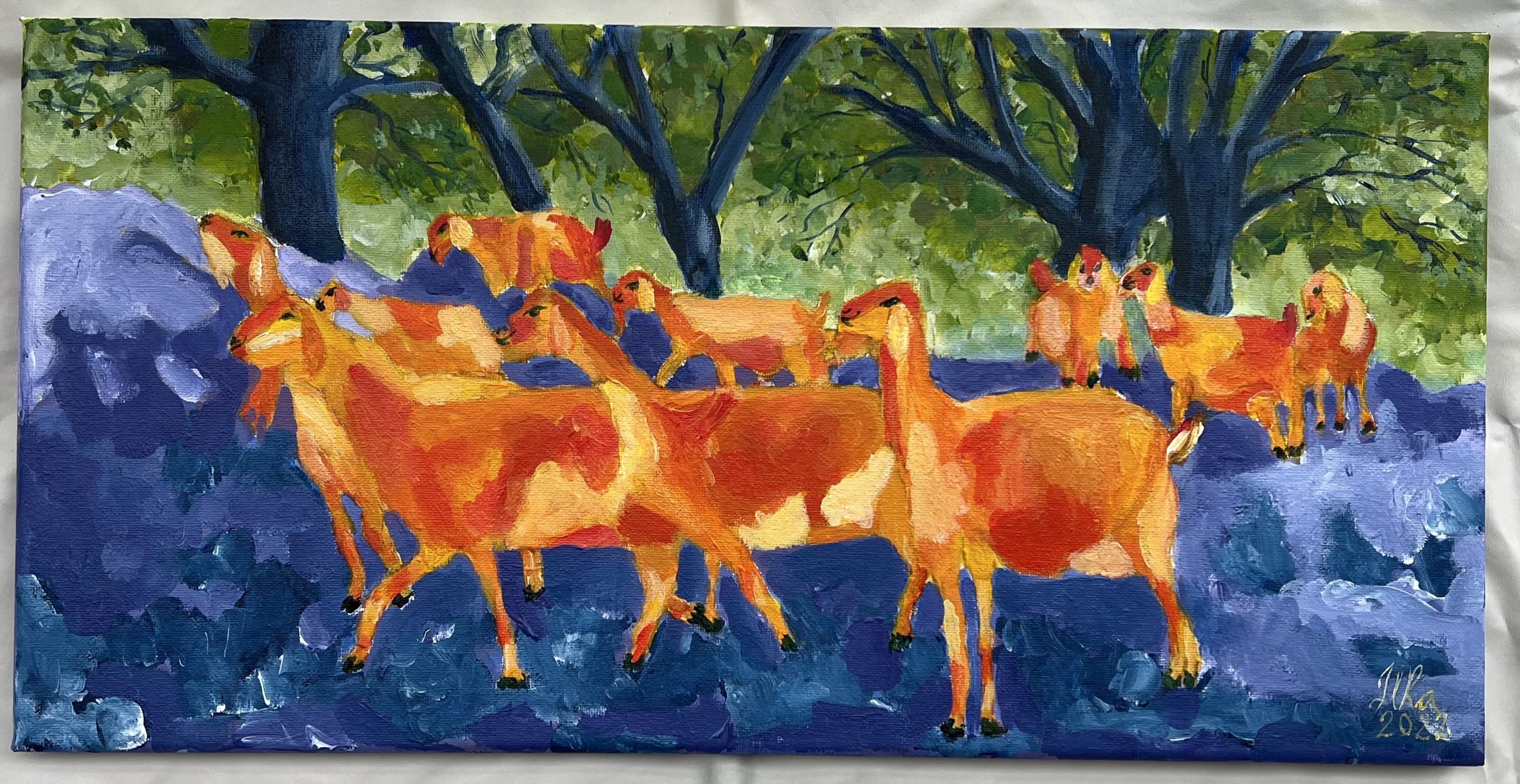Translated by Marvin Najarro
The fiesta de quinceañera of her eldest daughter will be celebrated in the night; the excitement has not let her to sleep a wink for the last week. Macarena worked overtime for a year to save money for the fiesta expenses. By video calls she was able to follow the preparations, from family meetings where grandparents, uncles and aunts, nieces and nephews, and close friends were present to the last details in which she had the last word.
Macarena wants her daughter’s fiesta to be remembered throughout the town. It is the way she found to embrace her daughter tightly in her arms, from the far away El Norte to her native town in Candelaria, Lempira, Honduras. It was also a way to show those who criticized her for being a single mother that her daughter could have a fancy fiesta without the need for a tata.
She bought two cows, two pigs, a goat and a dozen ducks for the fiesta. From the United States she sent boxes of liquor, tablecloths, napkins, disposable plates and cutlery; the quinceañera vestido, and the suits for the family. Macarena paid for everything, including the cab fare to take her family to pick up the remittances to rent the party room.
It’s seven o’clock in the morning, and Macarena has already loaded the bag with fifty pounds of apples eight times. The ladder is her inseparable companion, she climbs up and down the three meters height to reach the fruits on the topmost branches; she is paid thirty dollars for every nine hundred pounds of apples she is able to pick. Her back is injured, she has a herniated disc, and arthritis in the hands, but it does not matter, rain or shine the apples have to be picked.
Macarena, as most undocumented immigrants who toil in the apple orchards in New York, has never been in the city downtown, because they work from Monday to Sunday, but also because to go on a trip is something just a few people can afford; spending money on a train or bus fare will trim down their remittances. And the fear of deportation is the undocumented biggest enemy in the country.
That’s why Macarena, afraid of using public transportation, prefers to pay one of her female coworkers for the ride to and from work. But she knows perfectly well that an immigration raid in the fields would make deportation inevitable. Living in the United States for thirteen years has taught her something about daily survival. Fending for herself, is something she learned as a child in her native town.
Although she will not be physically present at her daughter’s fiesta, she will be by video call, that’s why she will not work the three hours overtime as she normally does every day. She asked to leave work early, even if the money she will not get for the extra hours affect her payment of electricity and phone bills. She has to go to the beauty salon to have her hair dyed and arranged; she bought the dress in a second-hand store and sent it to a dry cleaning; it looks spotless now. In the apartment she shares with nine more immigrants she has already made the preparations to enjoy the fiesta with her roommates.
They bought the snacks and drinks to be in tune. Macarena wants to enjoy the fiesta to the fullest, and see how the jealous people of the town come to her daughter’s fiesta. She wants them toeat their fill, and drink until they pass out, so that the fiesta de quinceañera of one of Macarena’s daughters, the one who cleaned bathroom at the town bus station, will be remembered for many years to come.
The next year will be her second daughter’s fiesta, she insists on throwing her a party, but the girl wants her to save the money to pay for a coyote that takes her to New York, so that she can embrace her mother, and work with her in the apple orchards.
If you share this text in another website and/or social media, please cite the original source and URL: https://cronicasdeunainquilina.com
Ilka Oliva-Corado @ilkaolivacorado






